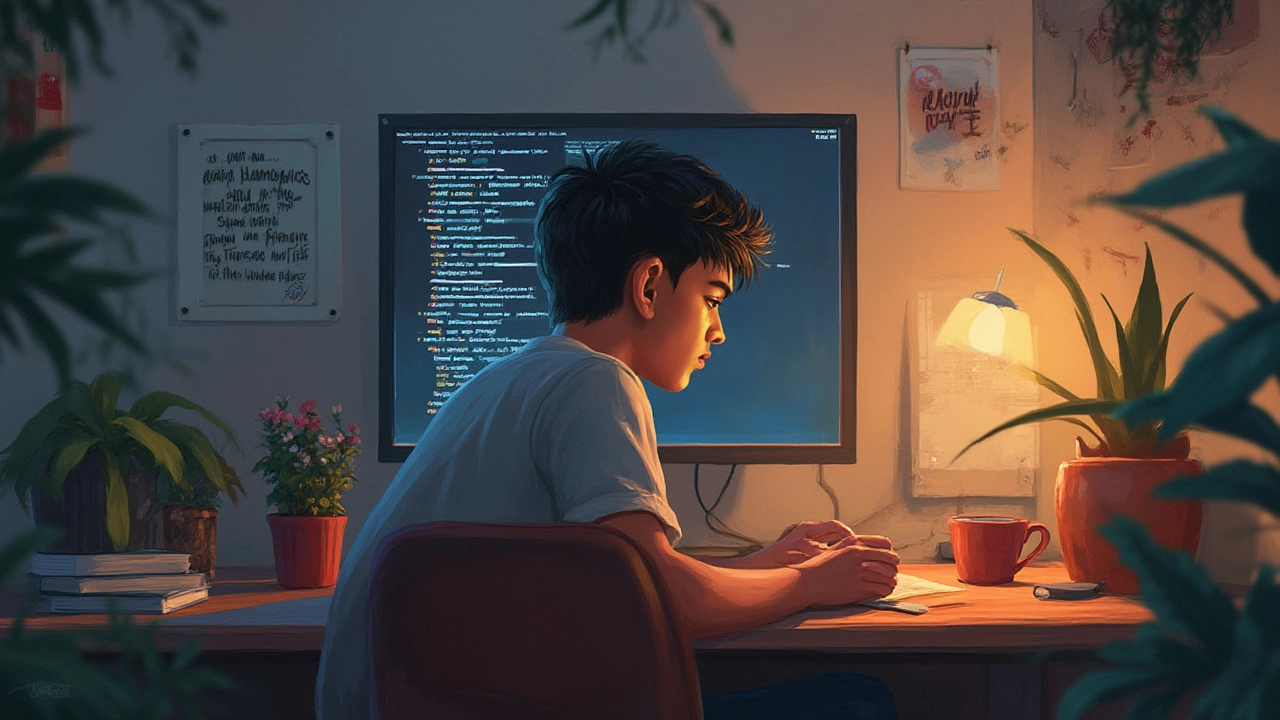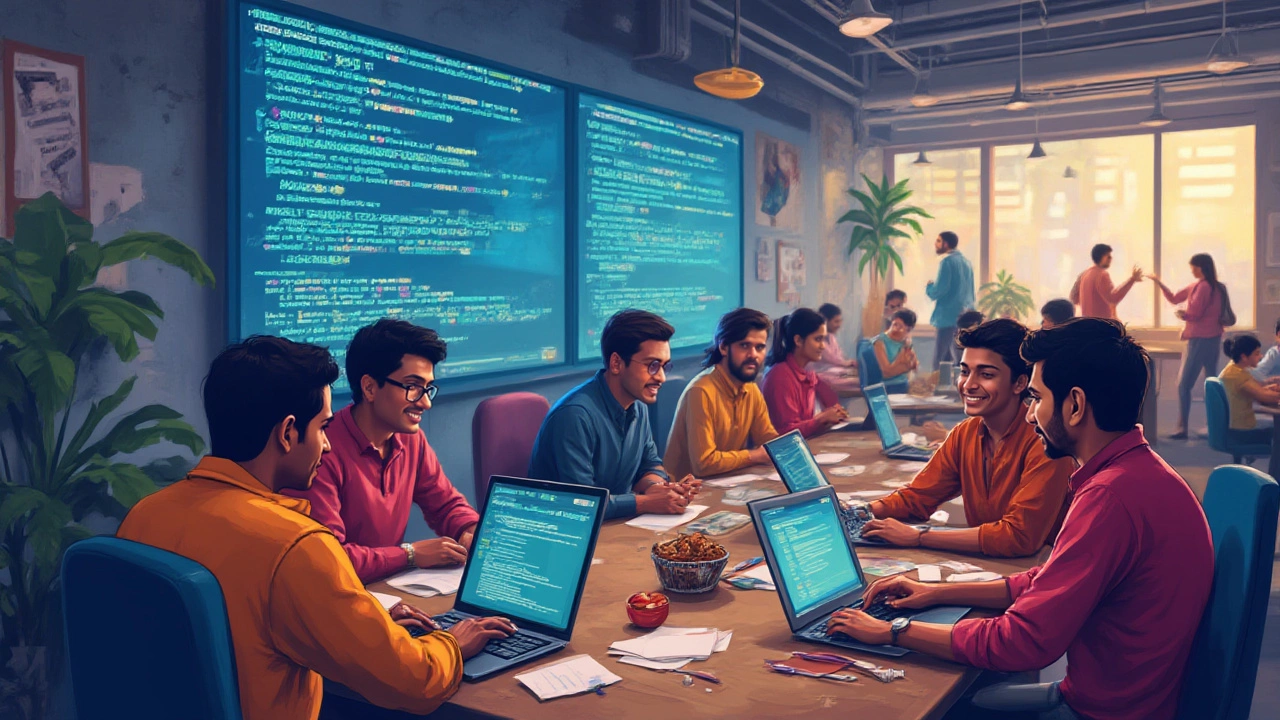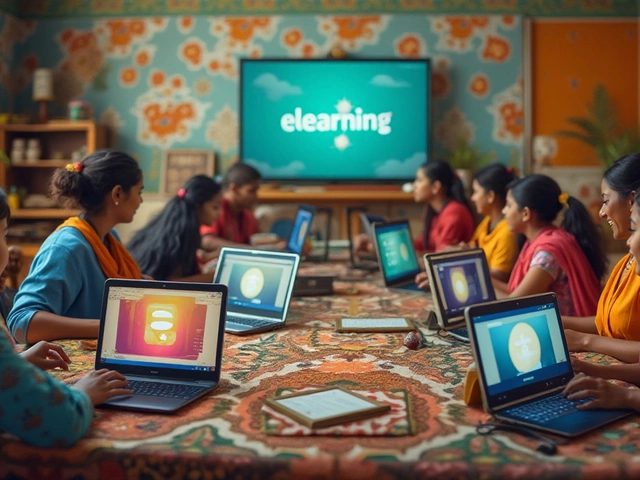
What if I told you the world’s first coder was a woman named Ada Lovelace, who in the 19th century wrote an algorithm before computers even existed? Pretty wild, right? Today, you don’t need a time machine, a math degree, or piles of cash to start coding. The real challenge is just knowing where to start. There are hundreds of programming languages, all with passionate fans saying, “Ours is the best for beginners!” But honestly, most people just want the easiest path to real results. So, which type of coding is actually the best for those dipping their toes in for the first time?
What Makes a Programming Language "Beginner-Friendly"?
Let’s clear up one myth: you don’t need to be a genius or a math whiz to learn coding. But not every language rolls out the red carpet for newcomers. When you’re fresh, what matters most is clarity, community support, and immediate feedback. You want a language that doesn’t fight you with weird symbols or overwhelming rules. Imagine learning to ride a bike—training wheels help. Some programming languages are like that: they help you balance while you get your bearings.
The biggest factor is “readability.” Python is famous for reading almost like normal English. Here’s proof: to print “Hello, world!” in Python, you just type print("Hello, world!"). Compare that to Java’s System.out.println("Hello, world!");, which is a mouthful for a newbie. But it’s not just about cleaner syntax. coding for beginners is easier when you can instantly see if what you wrote worked or not. Languages with interactive shells (think: you type something in, and it shows the answer right away) shorten the learning curve. Python, JavaScript, and Ruby are top contenders because of this.
Another huge factor? Support and resources. Python and JavaScript have massive communities, which means tons of free tutorials, videos, and forums. You get help fast, and you can find step-by-step guides for almost everything. You also want languages that are used in real companies for real projects. Why? Because when you build something cool, you want it to matter. So even as a beginner, you start learning skills that translate to real jobs later on.
Let’s not forget the importance of fun. Visual feedback—seeing things change on your screen—builds confidence and excitement. With JavaScript, you can start tweaking web pages in real time. With Scratch (which isn’t a language for professionals, but a legitimate stepping stone), you drag and drop colorful blocks to make simple games. Learning should feel rewarding, not like banging your head against a wall taped with error messages.
| Language | Ease of Learning | Community Support | Job Opportunities |
|---|---|---|---|
| Python | Very Easy | Excellent | High |
| JavaScript | Easy | Excellent | Very High |
| Scratch | Very Easy | Good (for kids) | Low |
| Ruby | Easy | Very Good | Medium |
| Java | Medium | Excellent | Very High |
The truth is, there’s no “one size fits all.” But if you’re after smooth sailing, languages like Python, JavaScript, or Ruby are almost always recommended. According to the TIOBE Index (which ranks languages by popularity), Python has been the top dog for two years straight because it just makes things so simple for new learners. MIT even uses Python to teach their famous computer science classes. The more beginner-friendly your first choice, the faster you get to the fun part—actually building things.
Here’s a quote that stirs up a bit of confidence.
"Programming isn't about what you know; it's about what you can figure out." – Chris Pine, author of 'Learn to Program'Starting with a friendly language is like learning to swim at the shallow end. Once you’re comfortable, you’ll have no problem diving deeper.

The Best Coding Languages for Beginners—And Why They Matter
No one wants to spend months on boring exercises that lead nowhere. That’s why the spark in learning to code is not just about the language itself, but what cool stuff you can build with it—right from the start. Python is the king here. Want to automate boring daily tasks, analyze data, or try out AI and machine learning? Python is your trusty Swiss Army knife. Mark Zuckerberg started with C++, but Python would have made his roadmap to Facebook a lot quicker if it was as powerful then as it is now.
JavaScript has its own superpower: instant results on the web. You make something, refresh your browser, and boom—there it is. This is why people who want to experiment with websites, interactive art, or little browser games gravitate to JavaScript. It’s nearly impossible to avoid, too—around 98% of websites use JavaScript in some way, according to W3Techs, as of 2025. If you’ve got a creative itch and want people to see your projects online, give JavaScript a spin.
Scratch deserves a quick mention, especially for kids or those intimidated by typing code. With its color-coded blocks and drag-and-drop interface, it lets you control characters and build simple games without ever seeing a confusing error message. I’ve seen parents and young kids code together for the first time, which always ends with laughter and a real sense of achievement. Once you’re past Scratch, Python is usually the next logical move.
Ruby came into the scene promising “developer happiness,” and it lived up to the hype for a while, especially with Ruby on Rails. It’s still simple to read and write, and some people prefer it over Python. But it’s less common now in new startups, which just means fewer beginner resources floating around.
Java and C# offer tons of jobs, no doubt. But they throw more technical curveballs at you in the beginning—extra code for things like setting up your first program, dealing with “data types,” or remembering where every semicolon goes. If you’re up for the challenge, great. If not, no shame in starting somewhere much simpler.
Languages like Go, Rust, and TypeScript are red-hot among pros but can be overkill for your first rodeo. Start with a language that gets you results in one hour, not one week. Building a habit matters way more than trying to “pick the right one” for your first crack at coding.
Here are a few more real-world facts and figures to chew on:
- Python has stayed in the top 3 most used programming languages for five years, according to the Stack Overflow Developer Survey 2024.
- JavaScript ranks as the #1 language for developers working in web tech or front-end projects.
- Google, NASA, and Netflix use Python for big pieces of their back-end systems and data crunching.
- Python's syntax was designed to be as close to plain English as possible, making it very friendly for people coming from other fields.
So if you want the easiest on-ramp? Go Python or JavaScript. Want to play and tinker visually, especially if you’re a younger learner? Start with Scratch and move up as your curiosity grows.

Tips to Get Started and Stick With Coding
Let’s face it: starting is easy, but sticking with coding can be tough. You’re going to get errors, see weird messages, and Google things that sound absolutely made up. Here’s how to make sure you don’t burn out before you build something cool.
- Set a tiny goal for your first week—like printing your name, making a calculator, or changing a background color on a web page. Small wins keep motivation high.
- Break up practice into short sprints. Even 20 minutes a day matters more than massive study sessions once a week. Consistency rewires your brain.
- Don’t be shy about using Google, YouTube, or forums like Stack Overflow. Even pros look up stuff all the time. In fact, there’s a joke: “Real programmers copy and paste, and it still works.”
- Join a coding community. You’ll learn faster with advice, code reviews, and the occasional pep talk. Reddit’s r/learnprogramming or Discord groups are full of friendly faces.
- Try project-based learning. Instead of random exercises, build projects you care about: a recipe website, a simple video game, or a to-do list that actually works how you want.
- When you hit a wall (and you will), step away and come back later. Fresh eyes make a difference. Coding is equal parts puzzle and persistence.
- Find open source projects or beginner hackathons once you're more comfortable—they’re fantastic for learning from real code (and meeting people).
| Tip | Why It Helps |
|---|---|
| Start simple | Keeps frustration low, motivation high |
| Practice regularly | Builds coding "muscle memory" faster |
| Use online resources | Instant help and endless tutorials |
| Join a community | Answers, support, and feedback from others |
Here’s the thing about starting any skill: it’s not about picking the “best.” It’s about picking “good enough to not get discouraged.” That’s usually Python or JavaScript, no matter who you ask. And nobody asks what language you used for your first project. They care about what you learned and built.
This may sound corny, but a big reason people succeed in coding is pure persistence. Mistakes are not failure—they’re checkpoints. Thomas Edison, who invented a ton of things, once said, “I have not failed. I've just found 10,000 ways that won't work.” Coding is like that. Mess up, tweak, try again—you learn something new every time.
You don’t need fancy equipment or a college degree to get started. Your laptop or tablet and free tutorials are your golden ticket. Break your goal down to the smallest step, keep it playful, and remember why you started. When things get tough, remember everyone’s code breaks at first—including the folks building billion-dollar apps today. Stick with it, and you’ll be amazed how fast you level up.





